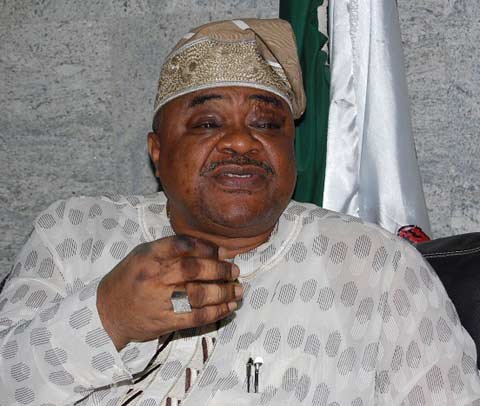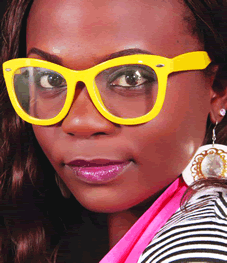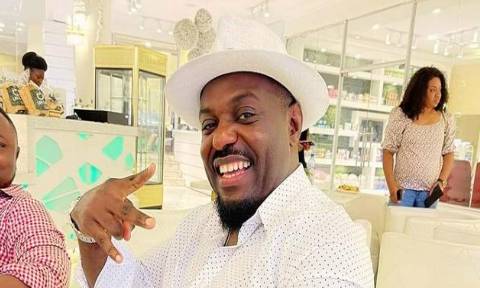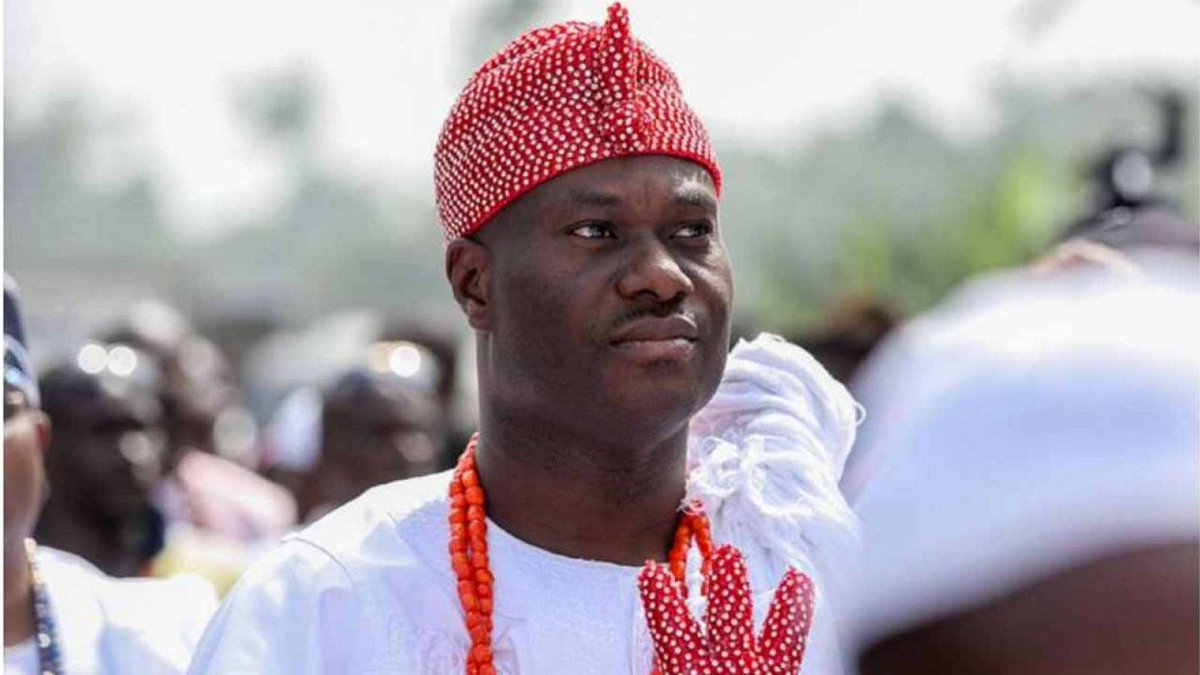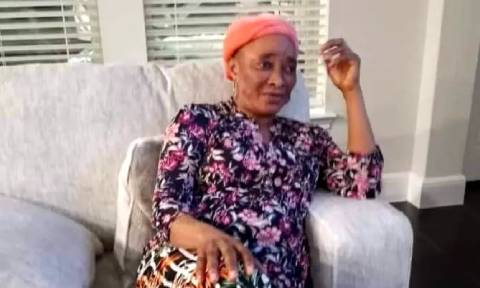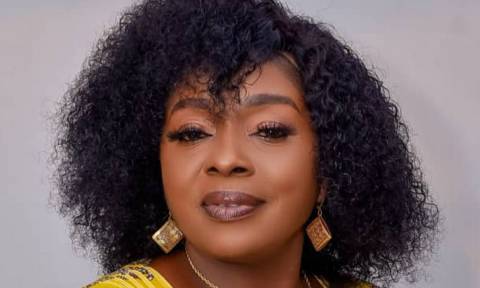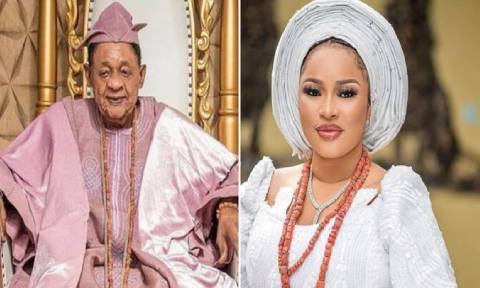
Katangua Market: A place for every taste Photo by Paul Kuyoro Katangua, a sprawling used goods market in Lagos, continues to attract scores of Nigerians, including the middle-class, despite poor infrastructure
As far as Kanyinsola Hazzan, a student of Lagos State University is concerned; it does not make sense buying clothes from boutiques. Hazzan buys her clothes at Katangua, a market noted for the sale of used goods, situated at Super Bus Stop, Lagos/Abeokuta Expressway. Chinwe Obi, a fashion designer, is also a regular visitor to the market. “I prefer buying second-hand curtains because they are more durable than the new ones. The curtains I bought from this market five years ago are still looking good,” explained Obi.
Besides students and low-income earners, working-class residents of Lagos and other neighouring states, also patronise Katangua Market. Indeed, the 26-year-old market has no class barrier as both rich and poor find their way there on designated market days to buy various items. For instance, Gbenga Odutola, a medical doctor, from Iyaganku, Ibadan, Oyo State, was at the popular market with his wife and children, recently, to shop for clothes and shoes. He said the clothes sold at the market were of high quality and when properly washed and ironed, they could be taken for new ones.
Katangua Market parades high quality used items like clothes, shoes, bags, curtains, bedspreads, weave-on, jewelry, and even undergarments. Hazzan told the magazine that, “it is not about being rich or poor, but a matter of where you can get your choice. I just can’t stand buying clothes in boutiques at ridiculous prices.” Like Hazzan, many people who patronise Katangua do so because of the low prices of various items.
The magazine found out that prices of goods at the market are much lower than prices in regular markets and boutiques across Lagos. For instance, while shirts are sold for between N1,000 and N5,000 in regular markets and boutiques, they are sold for between N250 and N500 at Katangua, depending on the grade. A pair of jeans could be bought at the rate of N500 as against N1,500 to N2,000 in regular markets and boutiques. With N500 to N1,500, one could get a pair of adult or children’s shoes whereas between N3,500 and N4,000 would be needed to buy same from shops in regular markets. The prices of women’s handbags are within the range of N2,500 and N8,000 elsewhere, whereas the second-hand version of the same items are sold for between N500 and N1,500 at Katangua Market. The prices of the items are usually determined by their grades. For instance, grade one items (newest items) are sold for higher prices while the grade two items (not so new) are sold for less. The last grade, clearance items (oldest and poorest quality) have the cheapest prices.
The goods sold at Katangua Market are imported from the United Kingdom, United States, Dubai, China, Korea and other European and Asian countries, through Cotonou, Republic of Benin. Despite the fact that the second-hand clothes are contraband in Nigeria, the market is flourishing by the day with more people joining the business. Since they have to bring in these goods in bales through illegal routes, the traders say the cost of doing the business has gone up. This, perhaps, explains the marginal but steady rise in the prices of goods in the market, especially in the last few months. Some traders lament that after paying huge sums to clear their consignments from the Beninoise seaport, the Nigerian custom officials extort huge sums of money from them to to give them passage.
According to Jabort Jackson, a trader who deals in used clothes at Katangua Market, customs officers are the cause of the marginal increase in prices of goods at the market. He, therefore, called for government intervention to regulate the activities of customs officials to enable the traders make a decent profit margin. He explained that the customers had to reduce the quantity of the goods they buy at the market due to the slight upward review of prices. He told the magazine that custom officers often seize their goods and demand huge sums of money before releasing them. That is not the only concern of Jackson; the price at which they buy their goods has also increased. “We used to buy a bale for N22,000 in 2009, but now the price has increased to N37,000, that is an additional N15,000 per bale,” he lamented. Ayokunu Showemimo, who has spent over 10 years in the business of used goods, is sad that her profit has declined considerably, a factor, which she also blamed on high purchase price and extortion by security officials along the border routes. Many other traders at the market have similar experiences.
Amaechi Maxwell, a trader in curtains and bedspreads at Katangua Market agrees that importation used items is illegal. He, however, argued that he had no other means of livelihood. This is also the view expressed by many of the traders who said they were forced into the business because they could not find employment anywhere. Some of the traders are university graduates who have been unable to secure jobs after their graduation. One of them who prefers to be called Samuel told the magazine that after graduating from the university six years ago, he searched in vain for a job and when he could no longer continue to remain idle, he gathered some money from his relatives and joined the business.
Indeed, Katangua Market has provided many people like Samuel a means of livelihood. People who want to trade at the market only need to see its chairman in order to get a shop or meet the shop owners to get a space to sell their wares. The cost of renting of shops at the market varies with some shops going for N38,000 per annum, while others that can be rented on a monthly basis go for N7,000 per month depending on size. Some traders, however, opt for a stand, which costs N20,000 per annum or N100 per day.
There are three unions that control the market. The Hausa traders are headed by Idris Muhammed, Serikin Kasuwa, while Odus Ikujiobi is the leader of Igbo traders. Sunny Nnajiofor, secretary of the Igbo Market Union, explained that the shops at the market belonged to the traders because they had bought them. On the issue of infrastructure, he said the unions decided about a year ago to work towards putting some facilities in place by generating revenue through a weekly contribution of N100 per trader. The number of traders operating at the market is put at about 10,000 and if all of them pay the levy, the unions would be able to fund the development of the market. But with the low compliance rate, the dream of having some modern facilities at the market may remain just a dream for a long time.
However, the greatest worry now for the traders appears to be the alledged plan by the state government to relocate the market. Nnajiofor told the magazine that the Lagos State government planned to relocate the market to Amikanle, Abule Egba, so as to relocate the Computer Village at Ikeja to the site. He said the plan was first conveyed to them during the tail end of former governor Bola Tinubu’s administration and was suspended when the governor’s mother, Habibatu Mogaji, the Iya Oloja, intervened on behalf of the traders. According to him, the only condition the Iya Oloja gave to them was that they should vote for Babatunde Fashola who was then the governorship candidate supported by Tinubu, which they did. That was four years ago. The traders have now gone to the court because they got information that the market would be demolished. “We got information from the right source that the market would be demolished after the last Christmas, so we decided to go to court. We have two cases in two different courts on this issue. One of them has been adjourned to June 7,” said Nnajiofor.
These legal and infrastructural challenges, notwithstanding, trading is still at its peak at Katangua Market. But Uche Nwafor, a medical doctor with Brafus Specialist Hospital, Akute, Ogun State, has cautioned against buying second-hand clothes, especially underwears. Nwafor noted that, “Buying second-hand clothes is not healthy because you can’t tell the number of months those items have spent before eventually getting to Nigeria and they must have some microbes that grow on clothes.” According to her, even when such clothes are washed and ironed, not all the germs are killed. She, however, advised those who must buy second-hand clothes to make sure they are thoroughly washed with good detergent, sun dried and ironed before putting them on as the health implications of not doing that could be grave
